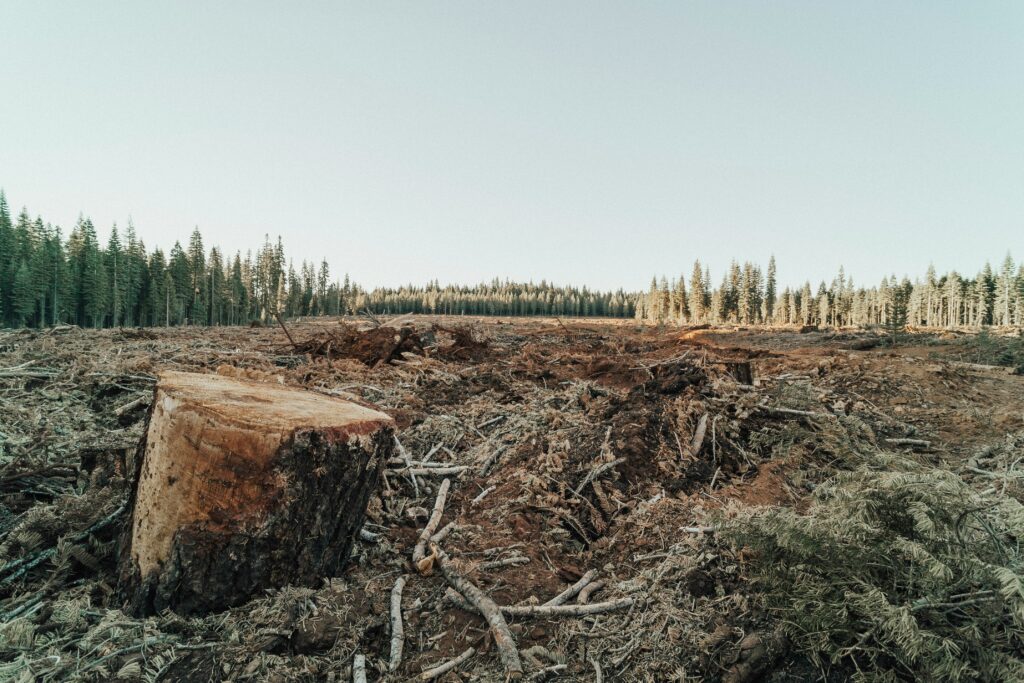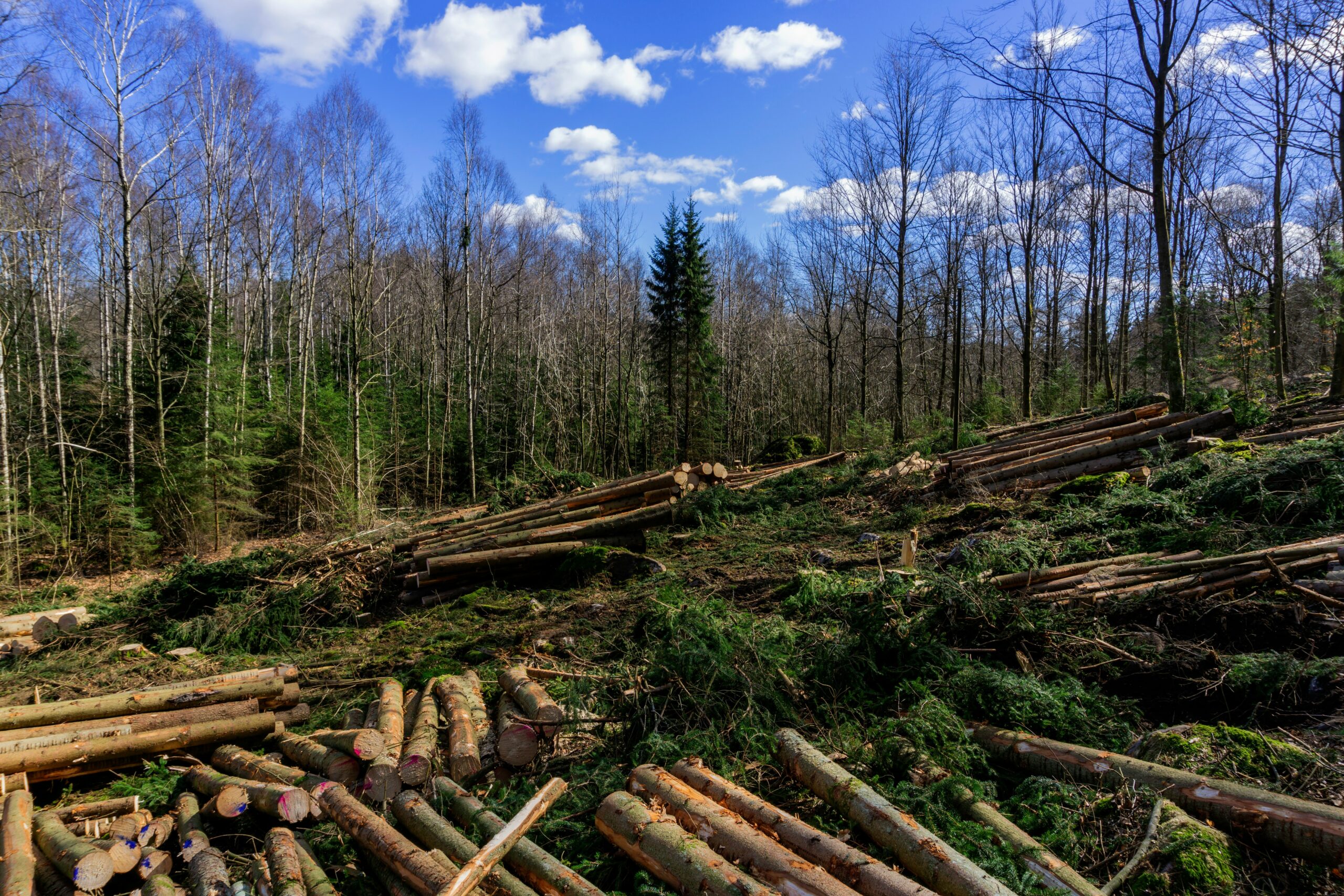The EU Deforestation Regulation (EUDR) is about to become a serious filter for global trade. If your business touches coffee, cocoa, palm oil, soy, rubber, cattle, or wood products in any way and you plan to sell in the EU, you’ll need to prove your supply chain is clean. Not close. Clean.
That means no recent deforestation. No illegal land use. No missing data. The regulation kicks in at the end of 2024 for large companies, and the penalties for missing the mark are not small, symbolic gestures. They’re real consequences that can hurt operations, finances, and long-term strategy.
This article unpacks exactly what those penalties are, how they’re enforced, and what businesses should be doing now to avoid being caught off guard.
The Basics: What Triggers EUDR Penalties?
EUDR penalties aren’t random. They come into play when a company fails to meet the regulation’s due diligence requirements, and those requirements are very specific. The law is built around the idea that businesses must be able to prove their products are deforestation-free and legally sourced. To do that, several steps are mandatory. A due diligence statement has to be submitted before any covered goods can be placed on the EU market. This statement isn’t just paperwork – it is a formal declaration that the company has done the checks, verified the data, and stands behind the claim that its products comply with the regulation.
Beyond that, companies are expected to provide clear geolocation data that pinpoints exactly where their products came from. It’s not enough to know the country of origin; authorities want the precise coordinates of the plots of land where cattle were raised or soy was grown. That data then feeds into a risk assessment process, where businesses need to demonstrate that the products they’re importing or selling are not linked to deforestation. If any level of risk is found, the company is obliged to take mitigation measures. That could mean switching suppliers, asking for additional evidence, or commissioning independent audits. The goal is to show that there is no real doubt about compliance.
The key thing to understand is that skipping any of these steps, doing them poorly, or submitting information that turns out to be false can all trigger penalties. And the penalties aren’t limited to a slap on the wrist. If a company can’t prove its supply chain is clean, regulators can block shipments, impose heavy fines, and put the business under closer scrutiny going forward. In practice, this means even small oversights – a missing geolocation file, a vague risk assessment, or a due diligence statement that doesn’t hold up under inspection, can expose a company to serious consequences.
Who’s on the Hook?
The regulation applies to:
- Operators that place relevant products on the EU market
- Traders who make those products available commercially
- Exporters moving covered goods out of the EU
- Companies established outside the EU, as long as their goods enter the EU customs territory
Even SMEs, while subject to fewer obligations, are not exempt from enforcement if they break the rules.
Let’s Talk Numbers: The Fines Are Steep
The EUDR sets a minimum penalty: at least 4% of EU-wide turnover in the previous financial year. That figure can climb based on:
- The number of violations
- How severe the breach was
- Whether it was a repeat offense
- The size and structure of the business
This isn’t just theoretical. The EU already has a precedent for enforcement with the GDPR, where tech giants faced massive fines for violations. Under EUDR, the goal is similar: remove any economic benefit gained from non-compliance. If your business made money from goods linked to deforestation, expect to lose it, and then some.

Enforcement Is Decentralized
Here’s something a lot of companies miss: the EU sets the regulatory framework, but member states handle enforcement. That means:
- Penalties will vary by country
- Local authorities are in charge of audits and investigations
- Some markets might be stricter or faster to act than others
The European Commission will also maintain a public list of non-compliant companies. That’s not just a reputational issue – it could tip off competitors, investors, and journalists.
Non-Financial Penalties (That Hurt Just As Much)
It’s not all about the money. In some cases, losing access to the EU market is a much bigger deal than paying a fine.
Here’s what else can happen:
- Confiscation of products at the border
- Blocking access to EU public funding or procurement programs
- Temporary bans on placing any relevant goods on the market
- Loss of simplified procedures for companies importing from low-risk countries
In short: one mistake could mean your business gets stuck in red tape, pushed out of contracts, and left off preferred supplier lists.
Supply Chain Disruptions Are Almost Guaranteed
Even if you dodge a penalty, poor compliance will still cause chaos. Misidentifying suppliers, failing audits, or missing documents can lead to:
- Product recalls
- Terminated contracts
- Production halts
- Delays in delivery
All of that slows down operations and weakens your reliability as a supplier. And if you’re mid-negotiation with a new buyer or distributor, non-compliance could kill the deal.
Your Reputation Is Also at Risk
The reputational fallout of EUDR violations is real. According to WWF, 7 in 10 European consumers want deforestation-linked products off the shelves. If your name ends up associated with the opposite, the damage could spread fast.
You risk:
- Losing environmentally conscious customers
- Getting dropped by retailers or partners
- Public backlash from NGOs and media
- Falling stock prices if you’re publicly traded
Some of this is hard to quantify, but the long-term costs of rebuilding public trust can easily surpass any fine.
Legal Action Is on the Table Too
The EUDR opens the door to civil or legal actions beyond EU enforcement. Environmental groups may file lawsuits or complaints, forcing your hand even if local authorities don’t move quickly.
Legal consequences can include:
- Court-ordered corrective measures
- Legal expenses
- Heightened scrutiny across all your business operations
Also, once flagged, companies may be subjected to more frequent inspections, creating an ongoing compliance burden that slows everything down.

Small Mistakes, Big Impact: Examples to Consider
What often catches companies off guard with the EUDR is that it isn’t always the big, obvious violations that trigger penalties. Sometimes it’s the small oversights that end up doing the most damage. Something as simple as leaving out a geolocation point in your data file, or submitting documentation a little later than required, can snowball into a major issue once customs authorities or regulators take a closer look.
Take the case of a chocolate manufacturer. If even part of its cocoa supply can’t be traced back to a verified deforestation-free source, the entire shipment risks being seized at the port. A furniture retailer that fails to properly check its wood suppliers could find itself locked out of the EU market for a year, not because of deliberate wrongdoing but because it skipped steps in verification. Or consider a soy trader who relied on a supplier’s verbal assurances instead of formal proof. On paper it may have seemed harmless, but under the EUDR that kind of shortcut can lead to heavy fines and possibly blacklisting.
The reality is that most of these problems aren’t intentional. They happen because businesses rush to push products through, assume their existing checks are good enough, or simply underestimate how strict enforcement will be. But the EUDR is structured in a way that leaves little room for error. Small mistakes, if left unchecked, can have outsized consequences – disrupting trade, damaging relationships, and inviting long-term scrutiny from regulators.
What You Can Do Right Now
If you haven’t started preparing, you’re already behind. The EUDR enters full enforcement in December 2025 for large companies. That’s not far off.
Here are five things to put on your immediate action list:
- Map your supply chain: Know exactly where your raw materials come from. That means plot points, coordinates, and documentation.
- Set up a due diligence system: Build internal processes for checking, storing, and submitting compliance documentation.
- Choose the right tech: Use satellite-based tools or compliance platforms (like LiveEO’s TradeAware) to automate checks and gather location data.
- Talk to suppliers early: Don’t assume they’re ready. Train them or switch to those who meet EUDR standards.
- Keep records organized: Documentation must be kept for at least five years. If an audit happens, you’ll need to show proof fast.

How We Help Companies Stay Ahead of EUDR Penalties
Em Conformidade da EUDR, we work with businesses across the globe to help them simplify and strengthen their compliance process before the deadline hits. Our platform uses satellite-based monitoring to track land use, analyze deforestation risks, and support automated compliance reporting. It’s fast, reliable, and built for the real-world pace of supply chain operations.
We focus on making complex EUDR requirements easier to manage. From verifying geolocation data to generating due diligence reports, our tools help you stay on top of what matters most. You get clear sustainability insights, a smarter compliance workflow, and peace of mind that you’re doing it right.
Covered commodities include coffee, cocoa, wood, paper, palm oil, soy, rubber, and cattle. Whether you’re already deep in preparation or just getting started, we can help you meet the regulation without guesswork.
What Not to Do
Just as important as what to do is what to avoid.
Don’t:
- Delay preparations until late 2024
- Assume your local or small-scale suppliers are exempt
- Rely on verbal assurances or incomplete paperwork
- Treat compliance as a one-time event
EUDR is ongoing. It’s not a checkbox. It’s a system you need to build, maintain, and improve over time.
Final Thoughts
The EUDR is a major shift in how the EU handles sustainability, and the penalties reflect that. It’s not symbolic. It’s not just about palm oil plantations in Indonesia or cattle ranches in Brazil. It applies across sectors and geographies, and it’s backed by serious enforcement mechanisms.
The cost of non-compliance? At best, a headache. At worst, a collapsed supply chain, millions in lost revenue, and a brand no one wants to work with.
If you want to avoid EUDR penalties, the time to act is now. Build your systems, verify your sources, and make sure every link in your supply chain is traceable and deforestation-free.
Because once the deadline hits, it’s not just about good intentions. It’s about proof. And the EU won’t be in the mood to negotiate.
FAQs
What’s the actual risk if I don’t meet the EUDR deadline?
If you miss the compliance deadline, you’re not just risking a fine. Your goods could get stopped at the border, you might lose access to EU markets, and regulators could start digging deeper into your supply chain. Even a single misstep, like incomplete geolocation data, can kick off a chain of problems. The financial hit is one thing, but the operational headaches and brand damage can be harder to fix.
Is the 4% penalty just a threat or will it really happen?
It’s very real. That 4% figure isn’t just pulled out of thin air – it’s written into the regulation as the minimum penalty, and member states can increase it if they see fit. The EU has shown before, with GDPR fines, that they’re not afraid to use big numbers to enforce rules. EUDR follows the same logic: if non-compliance gave you an economic edge, you’ll have to give it back.
Do small businesses have to worry about penalties too?
Smaller businesses have fewer reporting obligations under the EUDR, but that doesn’t mean they’re in the clear. If you’re part of the supply chain for a larger company, or if you’re exporting directly, you still need to follow the core due diligence rules. And if something goes wrong, the consequences still apply. The size of your company won’t shield you from enforcement if your products contribute to deforestation.
What if my supplier is the one making mistakes? Am I still liable?
Yes, and that’s part of what makes this tricky. The burden of proof falls on the operator or trader placing the product on the EU market. So if your upstream supplier gives you bad data or skips due diligence, it’s your name on the line. That’s why verifying every step in the supply chain isn’t just a best practice – it’s survival under EUDR.


